More Cool Space Words:
More cool space words:
Apastron: the point where two binary stars are farthest apart.
Azimuth: distance of an object in angular.
Bolide: an especially bright meteor, especially one that explodes in the atmosphere (also called fireballs!).
Catena: a chain or series of craters.
Ejecta: material that is strewn about a crater by an impact, usually a meteorite or other similar object.
Ephemeris: a table that lists the positions of the sun, moon, and planets by date.
Heliosphere: the magnetic bubble of space that contains our solar system, solar wind, and the entire solar magnetic field. It is so large it goes beyond pluto's orbit.
Meridian: an imaginary circle that goes through the north and south poles, and the zenith and nadir of a location.
Nadir: the point in the sky directly underneath you.
Nova: when a dying star suddenly flares in brightness. The star becomes thousands of times its original luminosity.
Prominence: an explosion on the surface of the Sun.
Singularity: the impossibly small space in the center of a black hole where density and gravity are infinite, and space-time curves infinitely.
Spicules: a jet of gas ejected from the sun's atmosphere that resembles grass.
Supernova: one of the most powerful forces in the universe. When a star uses up all of its fuel it ends its life in a spectacular and devastating explosion.
Terminator: line on a planetary body that separates the light side from the dark side.
Umbra: the darkest part of a shadow.
Zenith: the point in the sky directly overhead.
Zodiac: an imaginary belt across the sky that the sun, moon, and planets are always in. The zodiac is made up of 12 constellations.
pretty space words
aphelion - the point in the orbit of a planet, asteroid, or comet at which it is farthest from the Sun. astral - relating to or resembling the stars. caldera - a large volcanic crater, especially one formed by a major eruption leading to the collapse of the mouth of the volcano. celestial - positioned in or relating to the sky, or outer space as observed in astronomy. constellation - a group of stars forming a recognizable pattern. cosmos - the universe seen as a well-ordered whole. equinox - the time or date at which the sun crosses the celestial equator, when day and night are of equal length. faculae - bright patches that are visible on the Sun’s surface. lunation - the interval of a complete lunar cycle, between one new Moon and the next. interstellar - occurring or situated between stars. nebula - a cloud of gas and dust in outer space, visible in the night sky either as an indistinct bright patch or as a dark silhouette against other luminous matter. perihelion - the point in the orbit of a planet, asteroid, or comet at which it is closest to the Sun. synodic - relating to or involving the conjunction of stars, planets, or other celestial objects.
More Posts from Alitheastronomer and Others




Four beautiful examples of overlapping/interacting galaxies brought to you by the Hubble Telescope. To view the images in their full resolutions, please open them in a separate tab.
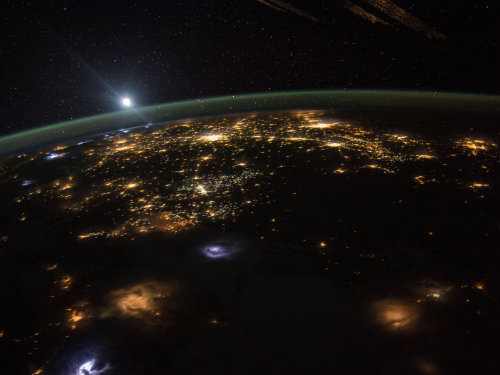
“The more I look at Earth, and certain parts of Earth, the more I feel like an environmentalist. It’s just a blanket of pollution in certain areas. We can fix that if we put our minds to it.“
-Astronaut Scott Kelly, whose one year long mission in space ended today (01/03/2016)
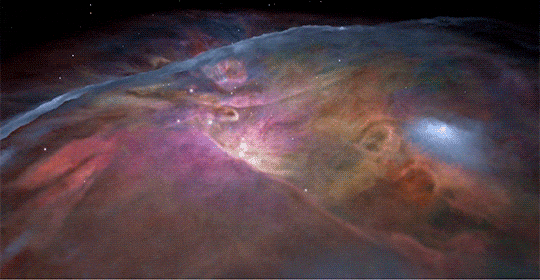
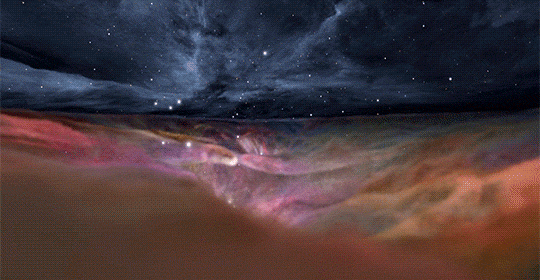



Flying Across The Universe Part 3 (From Top to Bottom: Fly through the Orion Nebula, Gum 29, and Sharpless 2-106)
(Part 1, Part 2)
Credit: HubbleSite.org
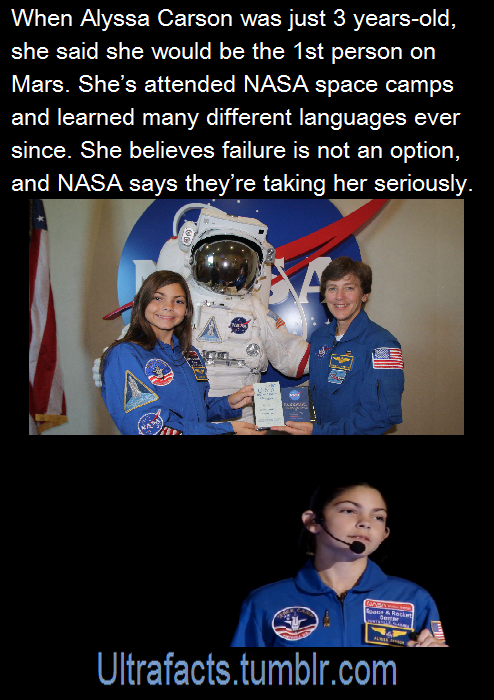
Now at the age of 13, she had already: Attended Space Camp 7 times, Space Academy 3 times and Robotics Academy 1 time. Became the first person to complete all the NASA Space Camps in the world, including Space Camp Turkey and Space Camp Canada. Witness 3 Space Shuttle launches. Attend Sally Ride Camp at MIT, and three Sally Ride Day camps. Speak several foreign languages: Spanish, French, Chinese and some Turkish. She also delivers motivational speeches to other children.
She is determined to be the first person to land on Mars & NASA is already training her.
(Fact Sources: 1 2) Follow Ultrafacts for more facts


Milky way
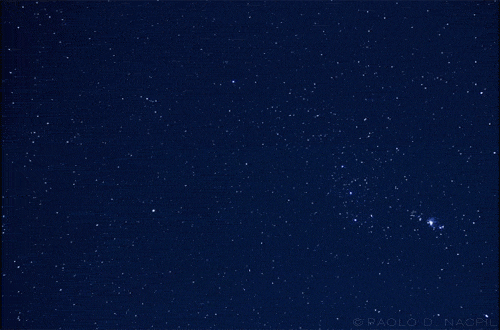
That video is fascinating, I can't stop watching it!
Blizzard 2016 from Space
As an intense winter storm approaches the mid-Atlantic this weekend, our satellites watch from above. The storm is expected to produce a wade swath of more than 2 feet of snow in some areas.

The below supercomputer simulation crunched the data to provide a look at the flow of clouds from storm systems around the globe, including the developing blizzard across the eastern United States.
This storm won’t only have a snowy impact on the mid-Atlantic region, but will also cause severe weather in the Gulf Coast. Satellites observe extreme rainfall in the area.

Data from NASA-NOAA Suomi NPP satellite and NOAA’s GOES-East satellite are being used to create images and animation of the movement of this powerful storm. For updates, visit: http://www.nasa.gov/feature/goddard/2016/nasa-sees-major-winter-storm-headed-for-eastern-us

Make sure to follow us on Tumblr for your regular dose of space: http://nasa.tumblr.com





Hickson 91 in Piscis Austrinus by Johannes Schedler
-
 ardimutt liked this · 3 weeks ago
ardimutt liked this · 3 weeks ago -
 merridelicious reblogged this · 3 weeks ago
merridelicious reblogged this · 3 weeks ago -
 merridelicious liked this · 3 weeks ago
merridelicious liked this · 3 weeks ago -
 strangerwise liked this · 1 month ago
strangerwise liked this · 1 month ago -
 adriennepoison reblogged this · 1 month ago
adriennepoison reblogged this · 1 month ago -
 adriennepoison liked this · 1 month ago
adriennepoison liked this · 1 month ago -
 princessponies81 liked this · 2 months ago
princessponies81 liked this · 2 months ago -
 agentnavi liked this · 2 months ago
agentnavi liked this · 2 months ago -
 agentnavi reblogged this · 2 months ago
agentnavi reblogged this · 2 months ago -
 kateinator reblogged this · 2 months ago
kateinator reblogged this · 2 months ago -
 kateinator liked this · 2 months ago
kateinator liked this · 2 months ago -
 unicornpsyche reblogged this · 2 months ago
unicornpsyche reblogged this · 2 months ago -
 celreniaworld reblogged this · 2 months ago
celreniaworld reblogged this · 2 months ago -
 elswhere liked this · 2 months ago
elswhere liked this · 2 months ago -
 spaghettiwritten reblogged this · 2 months ago
spaghettiwritten reblogged this · 2 months ago -
 ladygothamhaunt liked this · 2 months ago
ladygothamhaunt liked this · 2 months ago -
 vjentjan liked this · 3 months ago
vjentjan liked this · 3 months ago -
 vivisextion liked this · 3 months ago
vivisextion liked this · 3 months ago -
 sweetheartbreakgirl liked this · 3 months ago
sweetheartbreakgirl liked this · 3 months ago -
 etheria222 liked this · 3 months ago
etheria222 liked this · 3 months ago -
 utena-tfln liked this · 3 months ago
utena-tfln liked this · 3 months ago -
 shes-just-a-city-mare liked this · 3 months ago
shes-just-a-city-mare liked this · 3 months ago -
 tumorrow liked this · 3 months ago
tumorrow liked this · 3 months ago -
 pomeloeater liked this · 4 months ago
pomeloeater liked this · 4 months ago -
 dearreader137 liked this · 4 months ago
dearreader137 liked this · 4 months ago -
 calxlu reblogged this · 5 months ago
calxlu reblogged this · 5 months ago -
 calxlu liked this · 5 months ago
calxlu liked this · 5 months ago -
 last-starborn reblogged this · 5 months ago
last-starborn reblogged this · 5 months ago -
 lolabearwrites liked this · 6 months ago
lolabearwrites liked this · 6 months ago -
 tigerani reblogged this · 6 months ago
tigerani reblogged this · 6 months ago -
 tigerani liked this · 6 months ago
tigerani liked this · 6 months ago -
 aycayia liked this · 6 months ago
aycayia liked this · 6 months ago -
 fablenaught reblogged this · 6 months ago
fablenaught reblogged this · 6 months ago -
 kheda-li liked this · 7 months ago
kheda-li liked this · 7 months ago -
 mermaidfaewrites liked this · 8 months ago
mermaidfaewrites liked this · 8 months ago -
 firefly-suite reblogged this · 8 months ago
firefly-suite reblogged this · 8 months ago -
 bootlegpippin reblogged this · 8 months ago
bootlegpippin reblogged this · 8 months ago -
 ghostsknewmynights reblogged this · 8 months ago
ghostsknewmynights reblogged this · 8 months ago -
 ghostsknewmynights liked this · 8 months ago
ghostsknewmynights liked this · 8 months ago -
 spookyscaryslashy liked this · 8 months ago
spookyscaryslashy liked this · 8 months ago -
 spookyscaryslashy reblogged this · 8 months ago
spookyscaryslashy reblogged this · 8 months ago -
 smoothrockibiza liked this · 9 months ago
smoothrockibiza liked this · 9 months ago -
 psychovixxen liked this · 9 months ago
psychovixxen liked this · 9 months ago -
 matt-the-second-coming reblogged this · 9 months ago
matt-the-second-coming reblogged this · 9 months ago -
 gocleau reblogged this · 9 months ago
gocleau reblogged this · 9 months ago -
 maxlevelvon liked this · 9 months ago
maxlevelvon liked this · 9 months ago -
 wizard-css reblogged this · 9 months ago
wizard-css reblogged this · 9 months ago